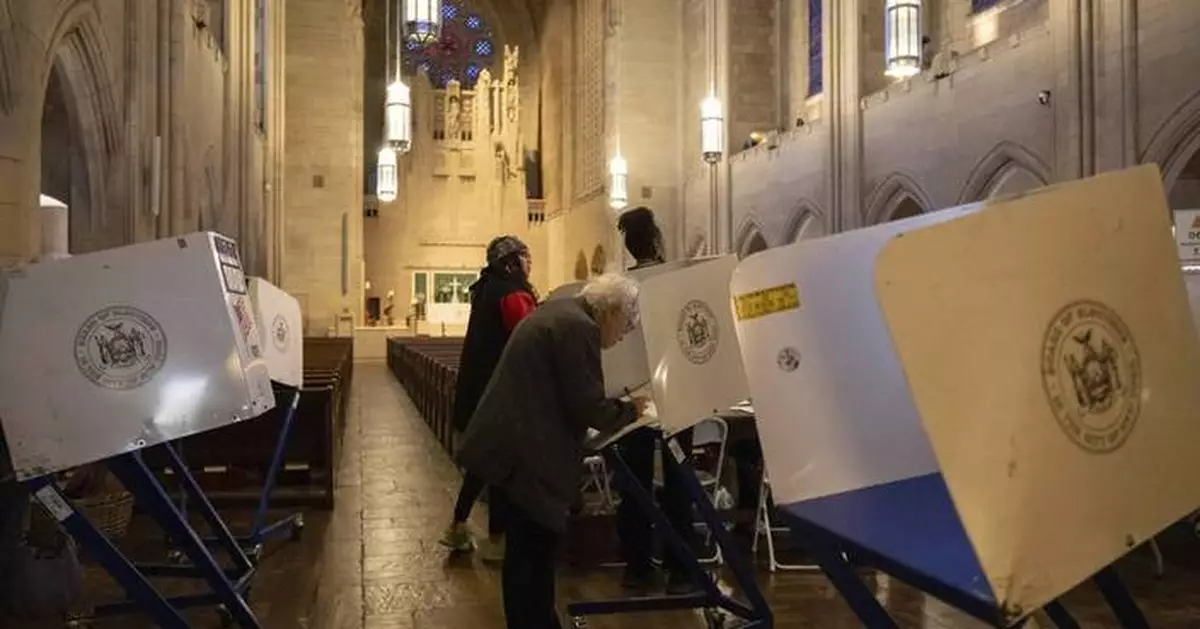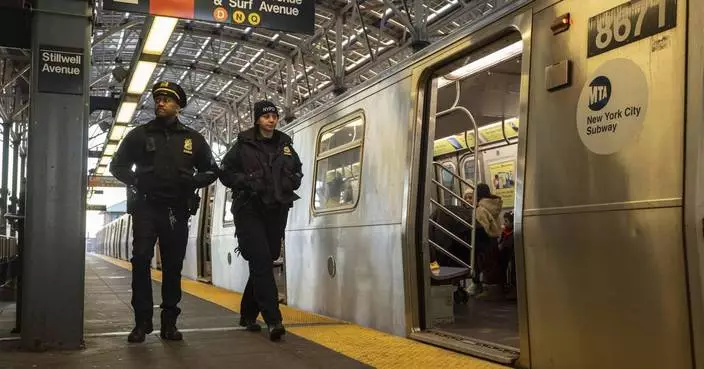A judge has struck down a state law that made it easier for New Yorkers to sue over electoral divisions and voting rules that weakened the political voice of minority groups, saying its special protections based on race and ethnicity are unconstitutional.
Orange County state court Justice Maria Vazquez-Doles struck down New York’s Voting Rights Act of 2022 on Thursday in a decision in which she also dismissed a lawsuit brought by six Black and Hispanic voters against the Town of Newburgh.
In the suit, the residents challenged the way people were elected to the town's board, arguing that “at-large” elections to pick board members in the majority-white town had kept Black and Hispanic residents from electing their candidates of choice. They asked the court to impose a system in which the town, located about 60 miles (96 kilometers) north of New York City, would elect board members by district.
New York’s Voting Rights Act created a pathway for voters to challenge at-large elections that led to racially polarized voting patterns or impaired a racial, ethnic or language-group's ability to get members of their community into office.
The judge said that portion of the act violated the equal protection clause of the 14th Amendment.
The U.S. Supreme Court similarly cited the equal protection clause in its ruling last year that affirmative action programs at colleges and universities were unconstitutional.
An attorney for the plaintiffs said they would appeal.
“We are confident that the New York Voting Rights Act is constitutional, and that on appeal that belief will be vindicated,” attorney David Imamura said.
The lawsuit, which was filed in March, was one of at least four lawsuits filed under the state’s voting rights act.
In her decision, Vazquez-Doles wrote that under the equal protection clause, the government can take actions based on race only if there’s a compelling state interest in doing so.
Ending discrimination against a racial group could meet that standard, Vazquez-Doles wrote, but the wording of New York's law didn't require voters challenging an electoral system to show evidence of past discrimination.
Hypothetically, she said, the law, as written, could also allow white voters to sue for electoral system changes on the grounds that their voting power had been diluted.
“No compelling interest — as that term has been defined by the U.S. Supreme Court's interpretation of the Equal Protection Clause — exists in protecting the voting rights of any group that has historically never been discriminated against,” Vazquez-Doles wrote.
She also found that the New York law didn’t include clear guidelines on how much a group’s voting power has to be diluted before its rights are violated.
New York was among more than a half-dozen mostly Democratic-controlled states that took action to protect voting rights after lawmakers became frustrated by new voting restrictions in some Republican-led states and the failure of voting rights legislation in Congress.
“When New York enacted the strongest voting rights law in the country, we knew there would be challenges,” state Sen. Zellnor Myrie, a bill sponsor, said in a statement Friday. “I disagree with the court’s legal reasoning and expect this decision will be overturned on appeal.”
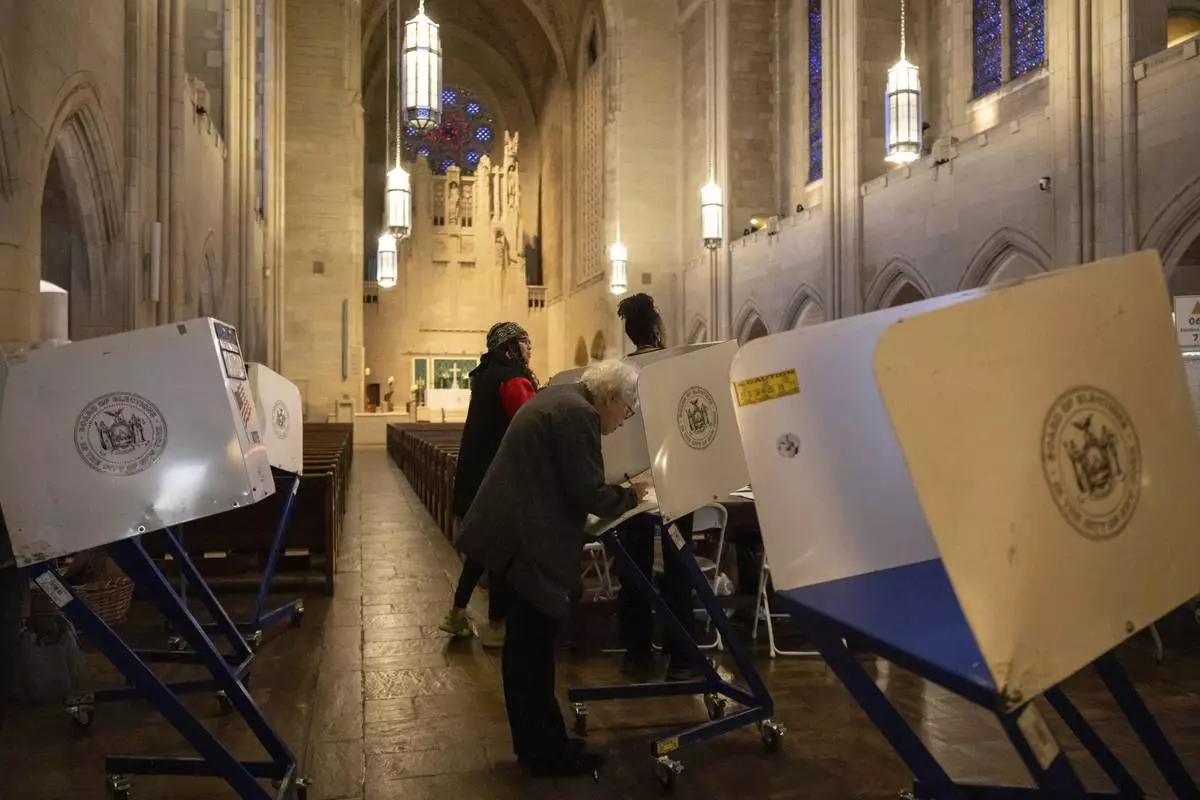
FILE _ A voter casts a ballot at the Church of the Heavenly Rest in New York on Election Day, Tuesday, Nov. 5, 2024. (AP Photo/Yuki Iwamura, File)
LAS VEGAS (AP) — The person inside the Tesla Cybertruck that burst into flames outside President-elect Donald Trump’s Las Vegas hotel suffered a gunshot to the head before the explosion, officials said Thursday.
Clark County Sheriff Kevin McMahill said at a news conference that a handgun was found at the feet of the man who's been identified as Matthew Livelsberger. Officials believe the shot was self-inflicted.
Livelsberger served in the Green Berets, highly trained special forces who work to counter terrorism abroad and train partners, the Army said in a statement. He had served in the Army since 2006, rising through the ranks with a long career of overseas assignments, deploying twice to Afghanistan and serving in Ukraine, Tajikistan, Georgia and Congo, the Army said.
He was awarded two Bronze Stars, including one with a valor device for courage under fire, a combat infantry badge and an Army Commendation Medal with valor. Livelsberger was on approved leave when he died, according to the statement.
The FBI said Thursday in a post on X that it was “conducting law enforcement activity” at a home in Colorado Springs related to Wednesday's explosion but provided no other details.
The explosion of the truck, packed with firework mortars and camp fuel canisters, came hours after 42-year-old Shamsud-Din Bahar Jabbar rammed a truck into a crowd in New Orleans’ famed French Quarter early on New Year’s Day, killing at least 15 people before being shot to death by police. That crash was being investigated as a terrorist attack. The FBI said Thursday that they believe Jabbar acted alone, reversing its position from a day earlier that he likely worked with others.
Both Livelsberger and Jabbar spent time at the base formerly known as Fort Bragg, a massive Army base in North Carolina that is home to multiple Army special operations units. However, one of the officials who spoke to the AP said there is no overlap in their assignments at the base, now called Fort Liberty.
Chris Raia, FBI deputy assistant director, said Thursday that officials have found ‘no definitive link’ between the New Orleans attack and the truck explosion in Las Vegas.
Seven people nearby suffered minor injuries when the Tesla truck exploded. Video showed a tumble of charred fireworks mortars, canisters and other explosive devices crowded into the back of the pickup. The truck bed walls were still intact because the blast shot straight up rather than to the sides.
Tesla CEO Elon Musk said Wednesday afternoon on X that “we have now confirmed that the explosion was caused by very large fireworks and/or a bomb carried in the bed of the rented Cybertruck and is unrelated to the vehicle itself."
"All vehicle telemetry was positive at the time of the explosion,” Musk wrote.
Musk has recently become a member of Trump’s inner circle. Neither Trump nor Musk was in Las Vegas early Wednesday. Both had attended Trump’s New Year’s Eve party at his South Florida estate.
Authorities know who rented the truck with the Turo app in Colorado, Kevin McMahill, the elected sheriff of Clark County, which includes Las Vegas, said Wednesday. He did not release the person’s ID, however.
Copp, Richer and Long contributed from Washington.
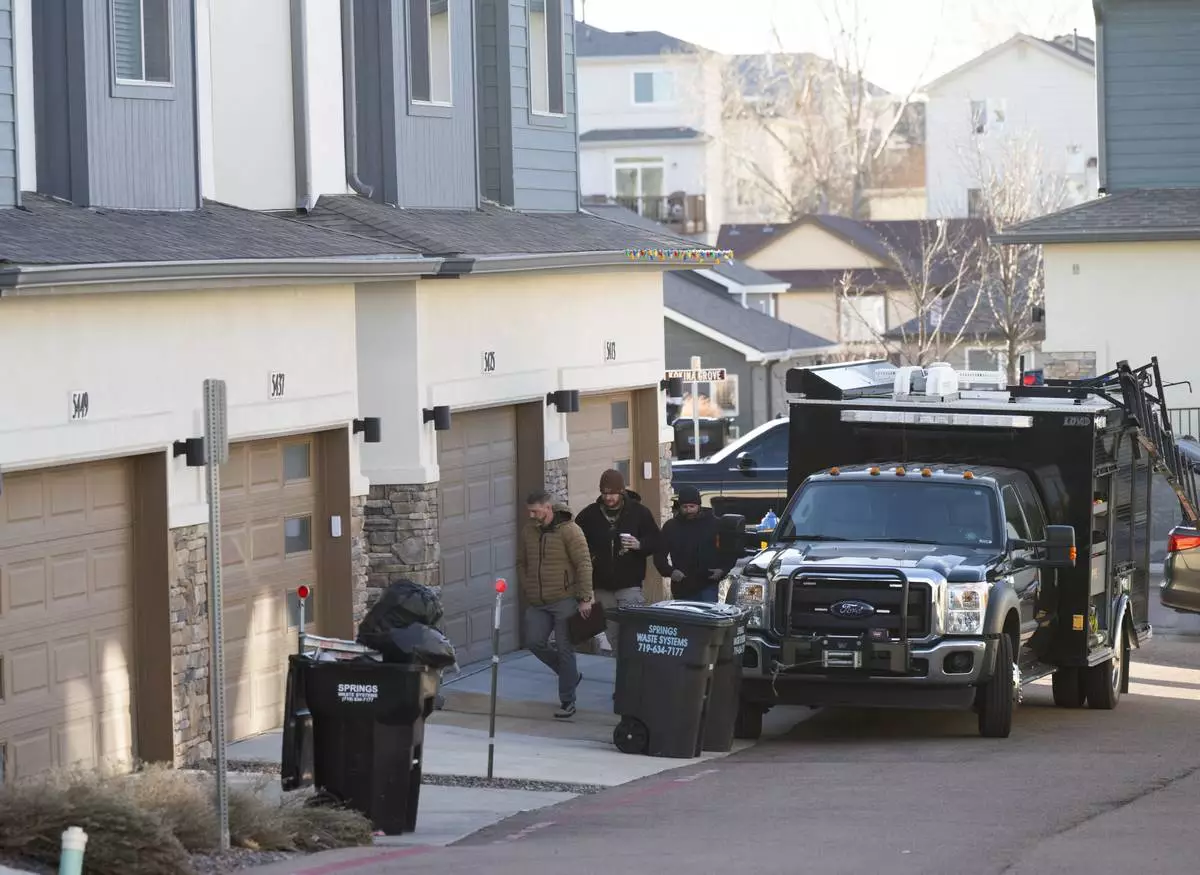
Investigators enter a townhouse in northeastern Colorado Springs, Colo., Thursday, Jan. 2, 2025, as the investigation connected to the explosion of a Tesla Cybertruck outside President-elect Donald Trump's Las Vegas hotel continues. (Christian Murdock/The Gazette via AP)
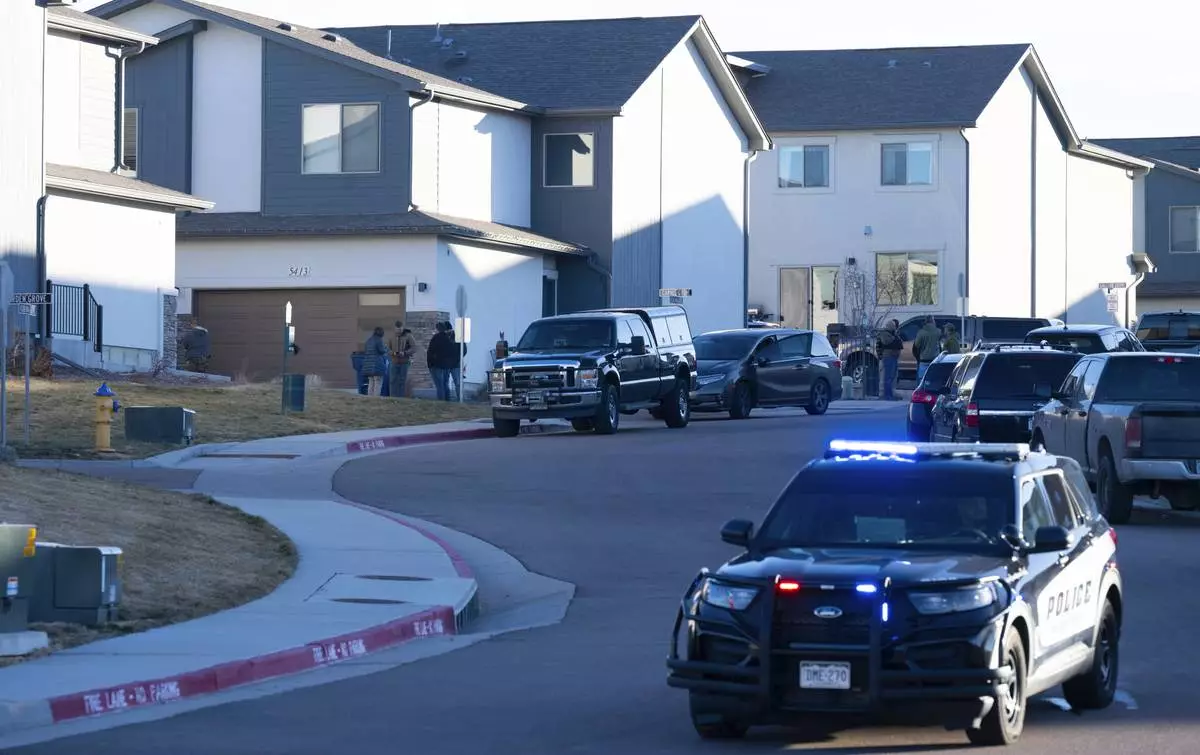
Investigators stand outside a townhouse complex in northeastern Colorado Springs, Colo., Thursday, Jan. 2, 2025, as the investigation connected to the explosion of a Tesla Cybertruck outside President-elect Donald Trump's Las Vegas hotel continues. (Christian Murdock/The Gazette via AP)

Police block the area after a vehicle caught fire and exploded outside the lobby of President-elect Donald Trump's hotel Wednesday, Jan. 1, 2025. (AP Photo/Ty ONeil)

Police block the area after a vehicle caught fire and exploded outside the lobby of President-elect Donald Trump's hotel Wednesday, Jan. 1, 2025. (AP Photo/Ty ONeil)

Police block the area after a vehicle caught fire and exploded outside the lobby of President-elect Donald Trump's hotel Wednesday, Jan. 1, 2025. (AP Photo/Ty ONeil)

Police block the area after a vehicle caught fire and exploded outside the lobby of President-elect Donald Trump's hotel Wednesday, Jan. 1, 2025. (AP Photo/Ty ONeil)



